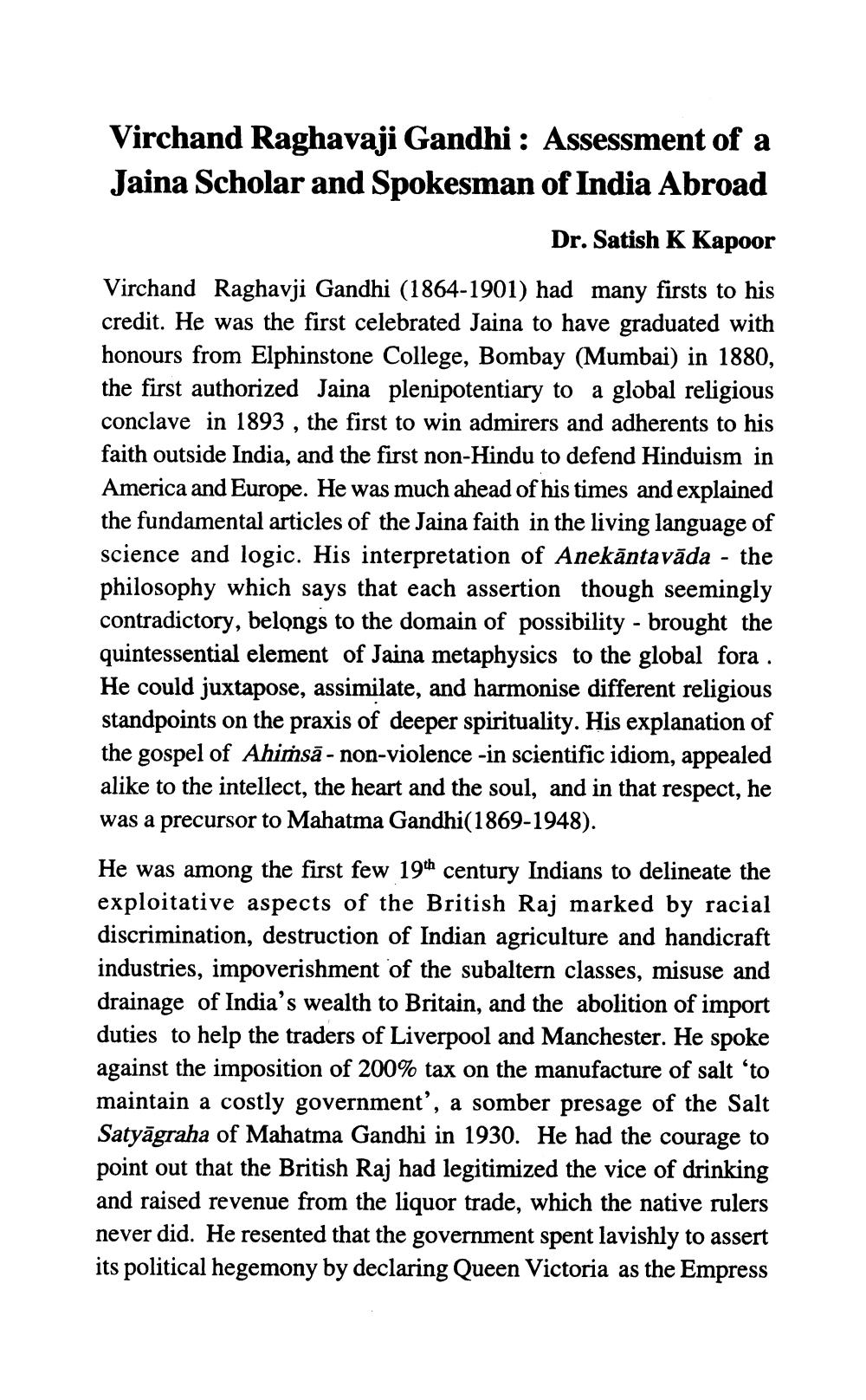________________
Virchand Raghavaji Gandhi : Assessment of a Jaina Scholar and Spokesman of India Abroad
Dr. Satish K Kapoor
Virchand Raghavji Gandhi (1864-1901) had many firsts to his credit. He was the first celebrated Jaina to have graduated with honours from Elphinstone College, Bombay (Mumbai) in 1880, the first authorized Jaina plenipotentiary to a global religious conclave in 1893 , the first to win admirers and adherents to his faith outside India, and the first non-Hindu to defend Hinduism in America and Europe. He was much ahead of his times and explained the fundamental articles of the Jaina faith in the living language of science and logic. His interpretation of Anekāntavāda - the philosophy which says that each assertion though seemingly contradictory, belongs to the domain of possibility - brought the quintessential element of Jaina metaphysics to the global fora . He could juxtapose, assimilate, and harmonise different religious standpoints on the praxis of deeper spirituality. His explanation of the gospel of Ahiṁsā - non-violence -in scientific idiom, appealed alike to the intellect, the heart and the soul, and in that respect, he was a precursor to Mahatma Gandhi(1869-1948).
He was among the first few 19th century Indians to delineate the exploitative aspects of the British Raj marked by racial discrimination, destruction of Indian agriculture and handicraft industries, impoverishment of the subaltern classes, misuse and drainage of India's wealth to Britain, and the abolition of import duties to help the traders of Liverpool and Manchester. He spoke against the imposition of 200% tax on the manufacture of salt ‘to maintain a costly government’, a somber presage of the Salt Satyāgraha of Mahatma Gandhi in 1930. He had the courage to point out that the British Raj had legitimized the vice of drinking and raised revenue from the liquor trade, which the native rulers never did. He resented that the government spent lavishly to assert its political hegemony by declaring Queen Victoria as the Empress




